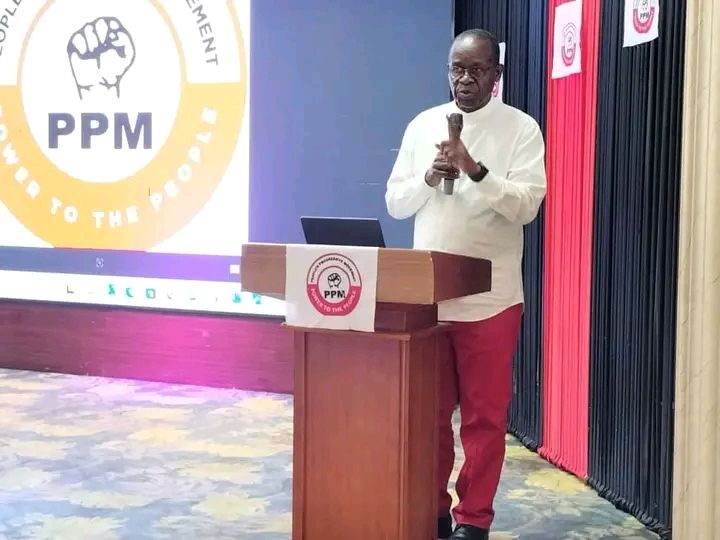By Jones Gadama
Peoples Progressive Movement (PPM) President Mark Katsonga Phiri has cautioned political parties discussing electoral alliances ahead of the September 16 presidential elections.
Katsonga argues that such discussions should wait for the outcome of the elections, particularly if a candidate is likely to win over 50% of the votes.
Speaking at a political rally in Neno South constituency, where he was gathering views from constituents on his presidential bid, Katsonga emphasized that premature alliance discussions could undermine the 50+1 law.

“The parties should wait for the outcome of the elections before discussing alliances,” he said, adding that,”If a candidate wins over 50% of the votes, there’s no need for alliances.”
However, PPM’s stance on electoral alliances comes amid concerns about the party’s own viability.
PPM has been criticized for being inactive, with some describing it as a “briefcase party” that exists only on paper.
The party is reportedly struggling to maintain its registration, and if it fails to secure the required number of votes in the upcoming elections, it risks being deregistered.
Despite these challenges, Katsonga reiterated his call for voters to prioritize leadership qualities over family, tribal, or party connections.
He emphasized the importance of choosing leaders based on their ability to deliver development and good governance.
However, political and legal experts George Phiri and Khumbo Soko disagree with Katsonga’s stance on electoral alliances.
In separate interviews, they argued that parties are not breaking any law by discussing alliances ahead of the elections. “There’s no law that prohibits parties from discussing alliances before the elections,” Phiri said, adding that, “In fact, it’s a good thing for parties to explore potential alliances to strengthen their chances in the elections.”
Soko added that discussions on alliances can help parties identify potential partners and strengthen their campaigns.
“It’s a strategic move that can help parties build stronger coalitions and increase their chances of winning,” Soko said.
The debate on electoral alliances highlights the complexities of Malawi’s electoral system.
The 50+1 law requires presidential candidates to win over 50% of the votes to avoid a runoff election. If no candidate wins over 50%, the top two candidates proceed to a runoff election.
Electoral alliances can play a crucial role in determining the outcome of the elections.
By forming alliances, parties can pool their resources and support to strengthen their chances of winning.
However, the timing and nature of these alliances can have significant implications for the electoral process.
As the elections approach, the debate on electoral alliances is likely to continue.
Parties will need to carefully consider their strategies and potential alliances to maximize their chances of winning.
Ultimately, the outcome of the elections will depend on various factors, including the performance of individual candidates, party manifestos, and the overall political landscape.



